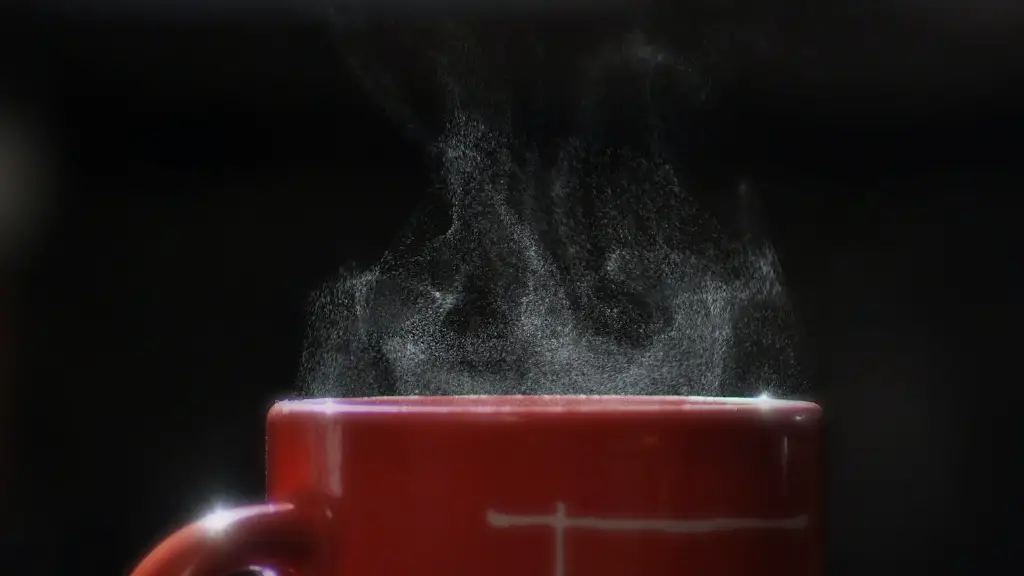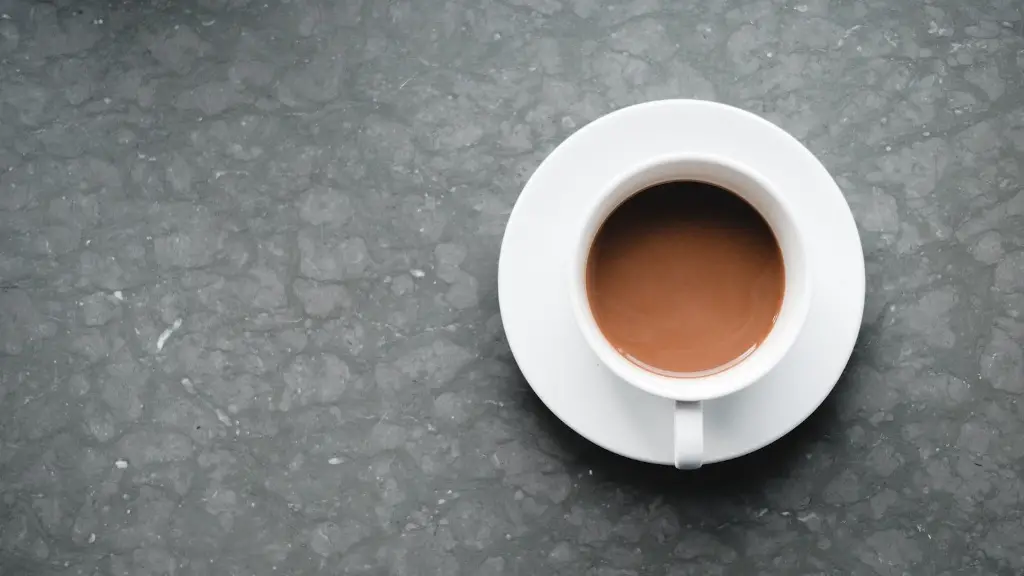The debate is longstanding and wide-ranging. Is it safe to drink coffee left out overnight? The answer is not a simple one and there are many opinions. According to some, when it comes to the effects of leaving coffee out overnight, the risks outweigh the potential rewards. Those who have experienced no ill health effects have stayed away from drinking overnight left out coffee for two main reasons. Firstly, the beverage becomes lukewarm and tastes stale. Secondly, there is a risk of ingesting potentially harmful bacteria from the stale coffee.
An alternative opinion is that drinking coffee left out overnight is safe insofar as no ill health effects occur. The acidity of a freshly brewed cup of coffee is thought to inhibit bacterial growth. A measure of acidity is measured by the pH level, and a typical cup of coffee has a pH level between 4.85 and 5.05 on average. In terms of bacteria growth, studies have found that pH levels below 4.6 are likely to round off bacterial growth.
In answer to the main question, the consensus seems to be that small amounts of coffee left out overnight can be consumed without fear of ill health effects. However, much of the data available reflects research carried out in a laboratory setting or focuses on the coffee continuing to be stored at a stable temperature. These conditions may not reflect drinking coffee that is left out overnight in a kitchen.
Additionally, bacteria inherently already present on coffee grounds can potentially worsen the effects of coffee left out overnight, including the likelihood of an upset stomach. Moreover, the effects of coffee left out overnight are potentially increased if a creamy additive such as milk or cream is added as these dairy products can also harbour potentially harmful bacteria.
Storing coffee correctly
Whether it be coffee grounds or a cup of brewed coffee, once the drink has been prepared it is important to store it correctly. An important consideration is to keep the coffee at the correct temperature and away from any sources of direct sunlight. Leaving coffee out overnight beneath the kitchen lights or exposed to natural light through the window increases the risk of bacteria growth and the potential to be contaminated by food particles in the air.
Store the coffee in an airtight container and ensure that the seal is secure. This will help prevent bacteria getting into the cup. The taste of coffee can also be affected by storage, meaning that it will no longer have the fresh aroma and taste that coffee lovers have come to expect. Therefore, coffee should always be stored correctly to keep it fresh and to reduce the risk of contamination.
Considering the alternatives
For those reluctant to part with their beloved cup of coffee, there are several alternatives to consider when it comes to consuming coffee left out overnight. The easiest solution, especially for busy coffee drinkers, is to simply make a fresh cup. Reheating coffee can also be done, however it is important to remember that bacteria growth does not stop once coffee has cooled down. Reheating coffee does not guarantee to kill off the bacteria that may be present.
Adding boiling water to an overnight cup of coffee is an interesting mid-way solution. This can be done to reinvigorate stale coffee and is a readymade way to improve the taste. Much like stirring the coffee as it cools, this helps to preserve some of the taste of the coffee.
Culling the coffee habit
Often, the great debate around coffee left out overnight masks a greater issue which is that of habit-forming consumption. Coffee has been long established as an addictive beverage, not dissimilar to alcohol or cigarettes in its effects on one’s lifestyle and wellbeing. In this scenario, the risk of drinking coffee left out overnight is likely to be low but the overall impact of the habit should be considered.
The risk of developing problems such as anxiety and sleeplessness increases if coffee is drunk in excessive amounts. It has been found that adults should only consume up to 400mg of caffeine a day, similar to the amount present in 4 cups of instant coffee. Therefore, remaining aware of the amount of caffeine consumed per day will help reduce the risk of health problems by removing the need to drink coffee left out overnight.
Evaluating the making process
Making coffee is a process in and of itself, and one that is often neglected. If coffee is taken for granted, prepared haphazardly and left out on the side overnight, then the chances of ill health effects increase. It is important to consider the amount of coffee being used, the water-to-coffee ratio and the length of time the coffee is left to stand. All of these factors need to be taken into account to maximise the taste and safety of the coffee.
Many coffee brewers also come with technology making it much easier to make delicious coffee safely. For instance, modern machines may be able to make coffee using cold water as opposed to boiling, as well as grinding coffee beans for greater accuracy. Moreover, these machines often feature a timer setting enabling you to have your freshly brewed cup ready just as you wake up in the morning.
The possibilities of chemical reactions
Although it is highly unlikely, compounds present in coffee may react with the surface of a cup or mug it is sitting in. For example, the acids present in coffee are capable of reacting with metals such as iron and lead present in the interior of a mug. This can cause these potentially dangerous materials to be released into the coffee itself leading to ingestion.
In conclusion, when it comes to ingesting coffee left out overnight the answer is ultimately one that is found between personal opinion and the available scientific research on the matter. Although there is little definitive evidence available, those who wish to make sure their cup of coffee is safe should always err on the side of caution and make a fresh cup of coffee if an overnight cup has been left out.
Exploring the impact of different ages
The safety of drinking coffee left out overnight also depends on age and health conditions. For example, infants, pregnant women and those with weakened immune systems may be more susceptible to consumption of potentially harmful bacteria. Additionally, caffeine levels influence safety with the American Academy of Pediatrics recommending that children aged 14 or under limit their consumption to 100mg or less per day.
It is not just bacteria in the coffee that matters, but also any bacteria that may be present in milk or other additives. After all, milk is a naturally occurring dairy product with human interference potentially introducing new bacteria. Therefore, children and those with health conditions should avoid drinking coffee left out overnight and focus instead on freshly brewed coffee.
The risk of contamination
The debate around the safety of drinking coffee left out overnight is an exercise in risk management. First and foremost, drinking coffee left out overnight is off-putting for many because of the taste. Beyond that, however, there is the issue of hazardous particles making their way into the cup in the form of bacteria. These bacteria, if ingested, could potentially cause stomach upsets, diarrhoea and other digestion problems.
The risk of contamination is further accentuated by changes in temperature, whether due to changes in weather conditions or human intervention in the form of reheating. Coffee that is heated repeatedly retains moisture and therefore increases the risk of bacterial growth and other nasties making their way into the cup. Similarly, some substances such as iron-based chemicals found in the glazing of cups may react with the acidic elements in coffee and cause chemical changes.
A need for knowledge
When it comes to drinking coffee left out overnight, it is important to remember that knowledge is key. An understanding of the risks and an awareness of the dangers helps in forming an appropriate opinion on the matter. For those who are still reluctant to pass up on a cup of lukewarm coffee, the risks should still be calculated in order to protect oneself from the potential ill health effects.
Moreover, the best approach is to become familiar with the entire process of making and consuming coffee from start to finish. This will lead to increased understanding and knowledge on how best to approach and respond to situations where coffee has been left out overnight. Coffee can then be consumed safely and with an informed opinion based on the facts.
Reassessing sources of bacteria
Another aspect of the safety of drinking coffee left out overnight is the effects of bacteria present in the cup before consumption. As mentioned, depending on the material the cup is made from, potentially hazardous materials may be present in the glaze of the cup. Ingesting chemicals such as iron pose a serious risk to health and could lead to long-term effects such as discolouration of the skin or other health issues.
Moreover, bacteria is all around us, particularly in the kitchen environment. Food that has been handled directly or which has been left out in the open can cause contamination of the cup and lead to potential ill health effects. It is therefore important to handle all foods correctly and to avoid leaving food out overnight.
The role of personal responsibility
The issue of drinking coffee left out overnight is ultimately a matter of personal responsibility. This means understanding the risks of leaving coffee out overnight and taking the appropriate action. An appropriate action could be to avoid coffee altogether or, at the very least, take steps to ensure that coffee is correctly stored and handled with the utmost care.
Of course, once coffee has been gone stale, the decision of whether to drink coffee left out overnight is a subjective one. If the pour is less than pleasant, then a fresher cup of coffee is often the best solution. For those preferring to take the risk and savour the lukewarm cup of coffee, then it is important to use cups that have been of a high quality, avoiding any sources of bacteria and contamination.





